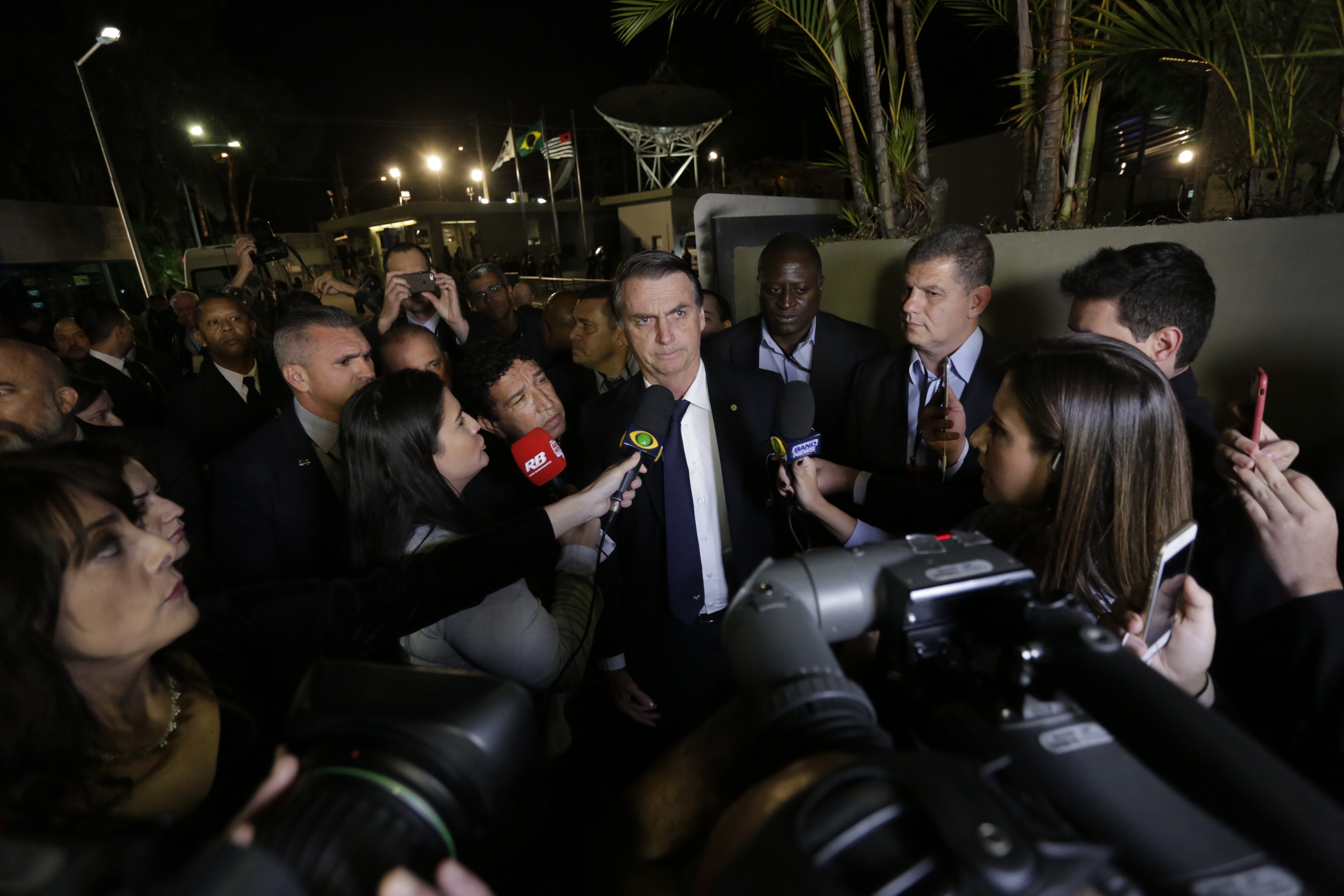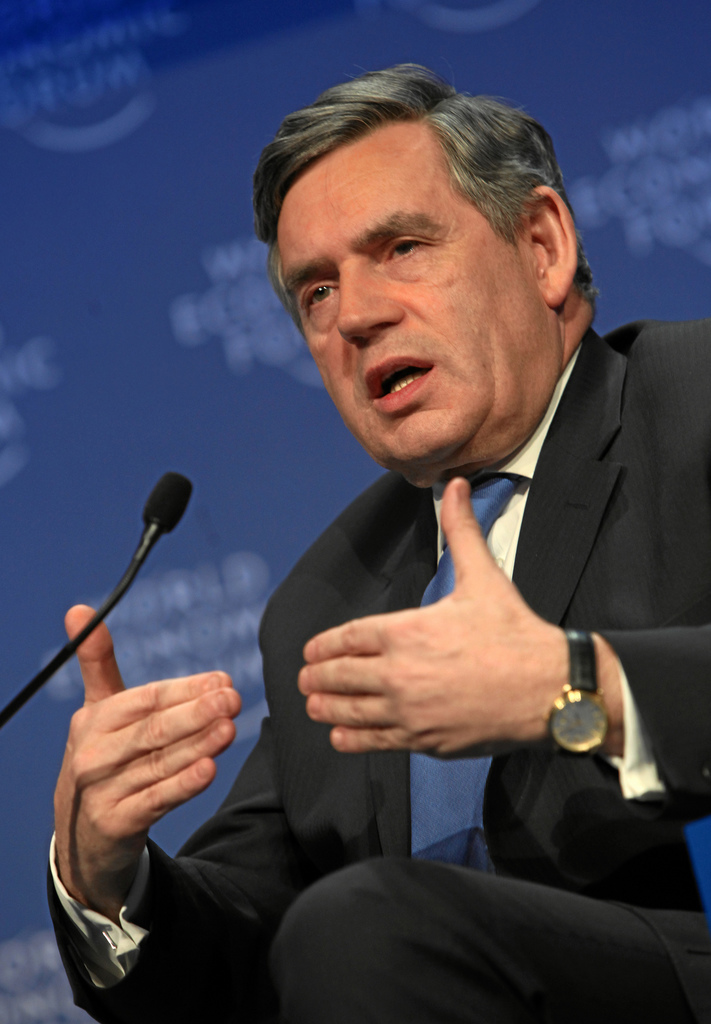On October 28th, far-right former military captain Jair Bolsonaro was elected president of Brazil by 55%, defeating Fernando Haddad of the left-leaning Workers’ Party and cementing a win for the country’s far-right movement.[1]
Over the last few decades, Brazil’s political institutions have faced constant turmoil. In 1985, the country saw a glimmer of hope when the 20-year-long military regime was replaced with a civilian government. The nation enacted a constitution in line with democracies around the world, establishing separation of executive, legislative, and judicial powers, bans on censorship, and condemnation of torture.[2]
But in the past few years, unrest and dissatisfaction with the government has increased due to corruption, economic crises, and spikes in violent crime; all of which have made the weaknesses in Brazil’s political institutions clear and vulnerable–vulnerable enough for the return of extreme populist and far-right leadership to become a detrimental reality.
As a former military captain himself, Jair Bolsonaro is emblematic of Brazil’s past fascist regime. Despite recent statements promising to act as a “defender of the Constitution, democracy and liberty,” Bolsonaro has frequently expressed his admiration for Colonel Ustra, former leader of the country’s military dictatorship who embraced torture, murder, and rape, as “necessary tools in the fight against communism.”[3][4] In a television interview in 1999, Bolsonaro argued that voting will never change anything, and that political progress will only be made when “a civil war breaks out here and does the job that the military regime didn’t do…Innocent people will die, okay, but in every war, innocents die.”[5] Between 1964 and 1985, the Brazilian military suspended all opposing political parties, denied Congress the right to delay executive orders, and exacerbated the country’s high rates of illiteracy, malnutrition, and infant mortality.[6] Yet, the president-elect claims that this was a time when the country was strong and unencumbered with the ineffectiveness of democracy.
Bolsonaro has previously been criticized for using this type of incendiary and hateful rhetoric. In 2014, congresswoman Maria do Rosário confronted him in person about his open promotion of violence, especially violence against women. While surrounded by journalists, Bolsonaro responded: “Ok, record this…look, I would never rape you, because you don’t deserve it.” When do Rosario replied, “I certainly hope so, because I would hit you if you did,” Bolsonaro physically pushed her and said, “hit me and I’ll hit you back…go away, you whore.”[7] He later said in a newspaper interview that do Rosário was “very ugly” and “not worth raping.”[8] In 2018, do Rosário reflected on the situation with dread: “[Us] women, with what happened to me…we fear that [a Bolsonaro victory] would legitimize even more violence.”[9]
The question remains why 55% of a country with a compulsory voting system would elect a leader so at odds with every democratic idea in their constitution, as well as with general norms of equality and respect.
The unfortunate reality is that Brazil’s young democratic institutions have become fragmented and strained. During the 2018 presidential election, people were still reeling from one of the largest corruption scandals the country has ever seen. Last April, former left-wing President Luiz Inácio Lula da Silva was imprisoned for money laundering.[10] These types of scandals, along with an economic crisis and rising crime rates, have left the people of Brazil divided and distrustful of their current government.
“I want to see if he can change things, because we have to do something about security and about education and the economy,” said Carlos Alberto da Silva, a textile-delivery worker who voted for Jair Bolsonaro.[11] This type of fear and frustration with the perceived political norm is frighteningly similar to that of the populist movement that won Donald Trump the U.S. presidential election in 2016. In the same way, Bolsonaro has marketed himself as the candidate of safety and reason; the man who will make a broken and corrupt Brazil ‘great’ once again.
Bolsonaro has built the foundation of his platform around a promise of returning the country to “law and order.”[12] But based on his proposed agenda, it is obvious that his plans to reinstate ‘order’ threaten Brazil, extending to the world at large. Crime in Brazil has become rampant and unmanageable, which became evident when homicides hit a record high of 63,880 in 2017, “nearly twice the number in the United States and the European Union combined.”[13] And Bolsonaro’s “zero tolerance” crime policy was undoubtedly the center focus of his campaign. But despite the fact that Brazil’s police force is one of the deadliest worldwide, responsible for over 5,000 recorded deaths this year alone, Bolsonaro has called for further police violence: “A policeman who doesn’t kill isn’t a policeman.”[14] Experts warn that there is no basis to prove that Bolsonaro’s tough-on-crime approach will work, and, if anything, it could make life worse for the 52% of the population that is not white.[15] “Things will get worse,” said Ilona Szabó, director of the Igarapé Institute, a Brazilian-based think tank. “The police will kill more. There will be more extrajudicial killings, especially of people in the slums and of blacks.”[16]
Despite being the largest Latin American country based on GDP, Brazil’s current economic crisis has sent the country into a state of panic, with over 13 million unemployed citizens.[17] To solve this crisis, Bolsonaro, admittedly, has no clue. After proudly claiming he knows “nothing about economics,” Bolsonaro has left financial policy decisions in the hands of investment banker and economist Paulo Guedes, who has been described as an “outspoken neoliberal financer.”[18] Together they plan to fix Brazil’s large budget deficit by attracting investors and privitizating state assets, including 70% of the Amazon rainforest, which falls under Brazil’s political jurisdiction.[19]
Bolsonaro’s plans to privatize the Amazon for the sake of economic gain have several drastic and horrifying implications. For one, Bolsonaro no longer plans to recognize indigenous tribal territories as legitimate, and wants to open these areas to expanded exploration. “If he wins, he will institutionalize genocide,” says Dinamam Tuxá, the National Coordinator of Brazil’s Association of Indigenous Peoples. “He has already said that the federal government will no longer champion indigenous rights, such as access to the land. We are very scared. I fear for my own life.”[20]
The Amazon, the world’s largest and most diverse rainforest, has lost 20% of its ecosystem to deforestation over the last 50 years; in the past decade, Brazil has been a leader in the fight against climate change, pledging to greatly reduce their deforestation and carbon emissions.[21] However, Bolsonaro plans to undo these efforts by increasing mining, agricultural land use, and power plant production in order to fix the country’s chronic energy shortages.[22] News of Bolsonaro’s plans came not even one month after the United Nations’ panel on climate change warned that the world stands on the brink of environmental disaster if “rapid and far-reaching” measures are not taken to curb greenhouse gas emissions, specifically citing the need to convert agricultural land back to forests.[23] It is more than likely that under Bolsonaro’s leadership, Brazil will become a major contributor to climate change, rather than a solution-seeking leader.
After receiving an influx of positive endorsements and congratulations from other populist leaders, Bolsonaro’s inflammatory, violent, and racist politics will only continue to be normalized and accepted.[24] Experts predict that his presidency will weaken and set back Brazilian democracy by at least 30 years. “The extreme right has conquered Brazil,” said Celso Rocha de Barros, a Brazilian political columnist. “Brazil now has a more extremist president than any democratic country in the world…we don’t know what is going to happen.”[25]
At first glance, the presidential election in Brazil may seem like a distant event that will only impact those residing within its borders. But Bolsonaro’s enthusiastic support of fascist principles and his promised legislation makes his election one of the most radical and dangerous that we’ve seen not just in Latin America, but internationally as well.
[1] Charner, Flora. “Far-right candidate Jair Bolsonaro wins presidential election in Brazil.” CNN. October 29, 2018 https://www.cnn.com/2018/10/28/americas/brazil-election/index.html
[2] Schneider, Ronald. “Brazil – The return of civilian government.” Encyclopedia Britannica. October 29, 2018. https://www.britannica.com/place/Brazil/The-return-of-civilian-government
[3] Londoño, Ernesto. “Jair Bolsonaro Wins Brazil’s Presidency, in a Shift to the Far Right.” The New York Times. October 28, 2018. https://www.nytimes.com/2018/10/28/world/americas/jair-bolsonaro-brazil-election.html
[4] Fogel, Benjamin. “Fascism has arrived in Brazil – Jair Bolsonaro’s presidency will be worse than you think.” Independent UK. October 29, 2018. https://www.independent.co.uk/voices/jair-bolsonaro-brazil-election-results-president-fascism-far-right-fernando-haddad-a8606391.html
[5] Faiola, Anthony. “Who is Jair Bolsonaro, the man likely to be Brazil’s next president?” The Washington Post. October 28, 2018. https://www.washingtonpost.com/world/2018/10/28/critics-are-afraid-jair-bolsonaro-heres-where-he-stands-issues/?utm_term=.acd34af64df4
[6] Burns, Bradford E. “Brazil – Military intervention and dictatorship.” Encyclopedia Britannica. October 29, 2018. https://www.britannica.com/place/Brazil/Military-intervention-and-dictatorship
[7] “New President of Brazil Told a Congresswoman She ‘Didn’t Deserve’ to Get Raped by Him.” Now This News. October 29, 2018. https://nowthisnews.com/videos/news/jair-bolsonaros-past-abhorrent-comments-to-a-congresswoman
[8] Meredith, Sam. “Who is the ‘Trump of the Tropics?’: Brazil’s divisive new president, Jair Bolsonaro— in his own words.” CNBC. October 29, 2018. https://www.cnbc.com/2018/10/29/brazil-election-jair-bolsonaros-most-controversial-quotes.html
[9] American Foreign Press, “NOT WORTHY OF RAPE’ DEPUTY SAYS SHE FEARS FOR BRAZIL UNDER BOLSONARO.” Eyewitness News. October 20, 2018. https://ewn.co.za/2018/10/19/not-worthy-of-rape-deputy-says-she-fears-for-brazil-under-a-president-bolsonaro
[10] Andreoni, Manuela. “Ex-President ‘Lula’ of Brazil Surrenders to Serve 12-Year Jail Term.” The New York Times. April 07, 2018. https://www.nytimes.com/2018/04/07/world/americas/brazil-lula-surrenders-luiz-inacio-lula-da-silva-.html
[11] Bevins, Vincent. “Can Brazil’s Democracy Withstand Jair Bolsonaro?” The Atlantic. October 29, 2018. https://www.theatlantic.com/international/archive/2018/10/brazil-democracy-jair-bolsonaro/574258/
[12] Strumpf, Dan. “What the Election of Jair Bolsonaro Means for Brazil.” Wall Street Journal. October 29, 2018. https://www.wsj.com/video/what-the-election-of-jair-bolsonaro-means-for-brazil/4F79BD86-F2D4-4DB6-A105-10AE9255C5F3.html
[13] Ibid.
[14] Ibid.
[15] Castillo, Mariano. “Minorities now officially a majority in Brazil.” CNN. June 16, 2011. http://www.cnn.com/2011/WORLD/americas/06/16/brazil.race/
[16] Faiola, Anthony. “How Jair Bolsonaro entranced Brazil’s minorities — while also insulting them.” The Washington Post. October 24, 2018. https://www.washingtonpost.com/world/the_americas/how-jair-bolsonaro-entranced-brazils-minorities–while-also-insulting-them/2018/10/23/a44485a4-d3b6-11e8-a4db-184311d27129_story.html?utm_term=.5a5dd9073e2d
[17] Ibid.
[18] Ibid.
[19] Tharoor, Ishaan. “How Brazil’s Bolsonaro threatens the planet.” The Washington Post. October 19, 2018. https://www.washingtonpost.com/world/2018/10/19/how-brazils-bolsonaro-threatens-planet/?utm_term=.524ca71039da
[20] Ibid.
[21] Ibid.
[22]Brito, Ricardo. “Brazil’s Bolsonaro plans more power plants in the Amazon: adviser.” Reuters. October 11, 2018. https://www.reuters.com/article/us-brazil-election/brazils-bolsonaro-plans-more-power-plants-in-the-amazon-adviser-idUSKCN1ML288
[23] Davenport, Coral, “Major Climate Report Describes a Strong Risk of Crisis as Early as 2040.” The New York Times. October 07, 2018 https://www.nytimes.com/2018/10/07/climate/ipcc-climate-report-2040.html
[24] Marshall, Euan. “Brazil braced for mass protests over Jair Bolsonaro as Trump pledges military support for far-Right former army captain.” Telegraph UK. October 29, 2018. https://www.telegraph.co.uk/news/2018/10/29/brazil-braced-mass-protests-jair-bolsonaro-trump-pledges-military/
[25] Phillips, Tom. “Jair Bolsonaro declared Brazil’s next president.” The Guardian. October 29, 2018. https://www.theguardian.com/world/2018/oct/28/jair-bolsonaro-wins-brazil-presidential-election



